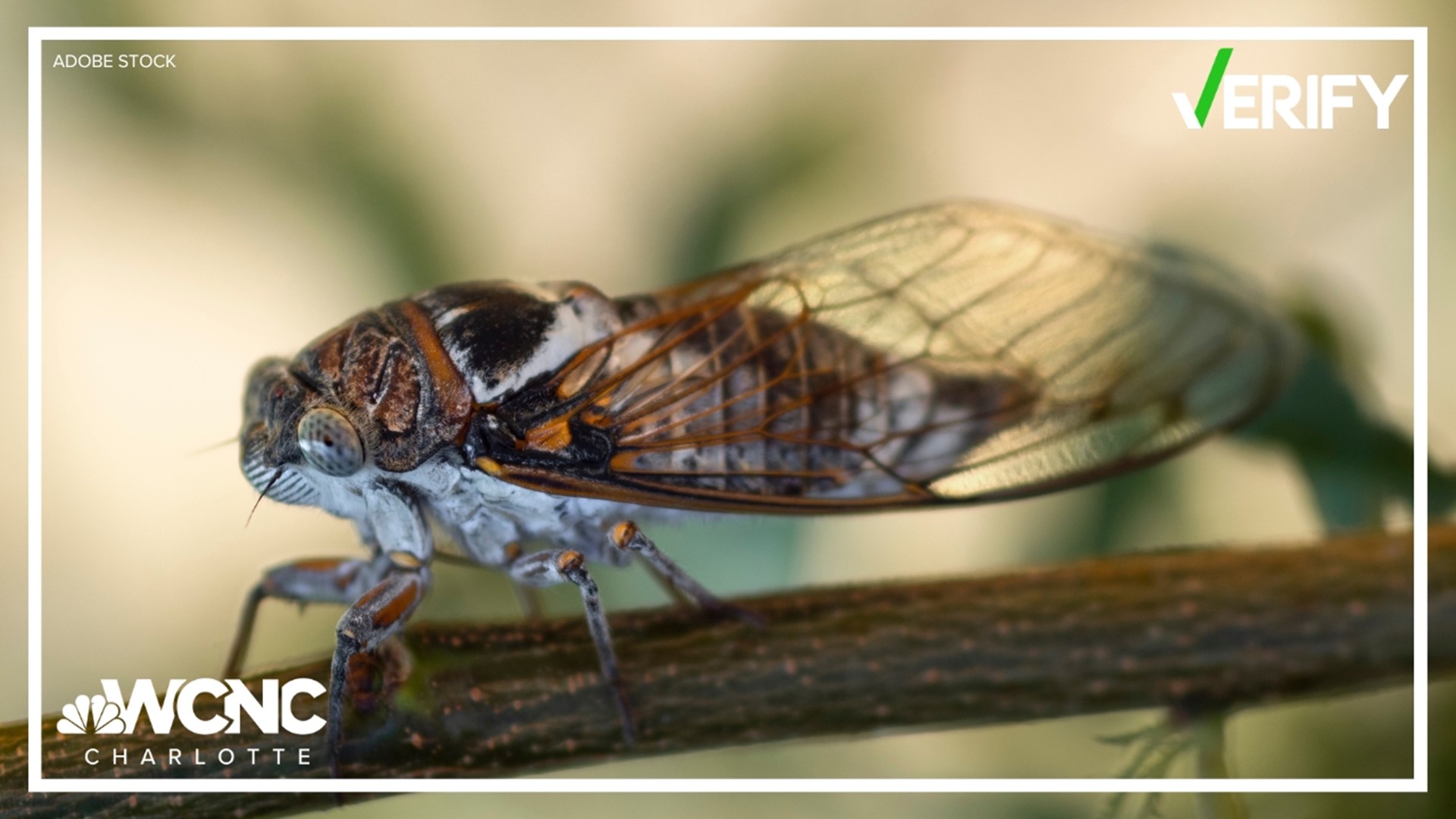CHARLOTTE, N.C. — Every year, we deal with cicadas. The bugs are known for their high-pitched noise and for hanging around different hard surfaces across the Carolinas.
Cicadas emerge every year, but several online claims say two different types of cicadas are now emerging, adding that this phenomenon last occurred more than 200 years ago. But is that true?
THE CLAIM
Several posts on social media say two different types of cicadas will emerge across several states, and they also claim this hasn't happened in two centuries. So, is this true? Will we see it in North Carolina?
OUR SOURCES
THE ANSWER
Yes, two types of long-dormant cicadas, Brood XIX and Brood XII, will emerge in some states. However, only brood XIX will emerge in North Carolina.
WHAT WE FOUND:
Flynn says each year in North Carolina we see a particular type of insect in the summer called the dog-day cicada. However, this year, we will be greeted by another type of cicada, this one is called Brood XIX.
For 13 years, Brood XIX cicadas have lived underground. Flynn said several states in the Southeast, including North Carolina, will see them emerge this summer.
"They are all underground feeding on the roots of trees, and at the end of their time, they come out from underground and attach to something solid like a building or a fenced post," Flynn said.
A third type of cicada is also expected to emerge this year.
Flynn said it is true Brood XIII, which has a 17-year life cycle, will come out as well. When combined with Brood XIX, that will mean billions of cicadas. But only in some parts of the country.
"The two broods will be meeting together for the first time in 221 years in the same place, and that's in northern Illinois," Flynn explained. "Both Broods won't meet here."
Even without Brood XIII cicadas, we can expected more activity this year because North Carolina will see the Brood XIX cicadas alongside the annual dog-day cicadas.
"There is nothing you can do because there are so many of them," Flynn said. "They are going to be in all the trees, and the males make the noise that sings for all the females."
Contact Meghan Bragg at mbragg@wcnc.com and follow her on Facebook, X and Instagram.
WCNC Charlotte's Verify series is all about trying to make a difference in the Carolinas by making sure the community has the correct information. WCNC Charlotte outlines concisely what we know and what we don't know. Sometimes the answer can be surprising. Watch previous stories where we verify social media claims in the YouTube playlist below and subscribe to get updated when new videos are uploaded.

